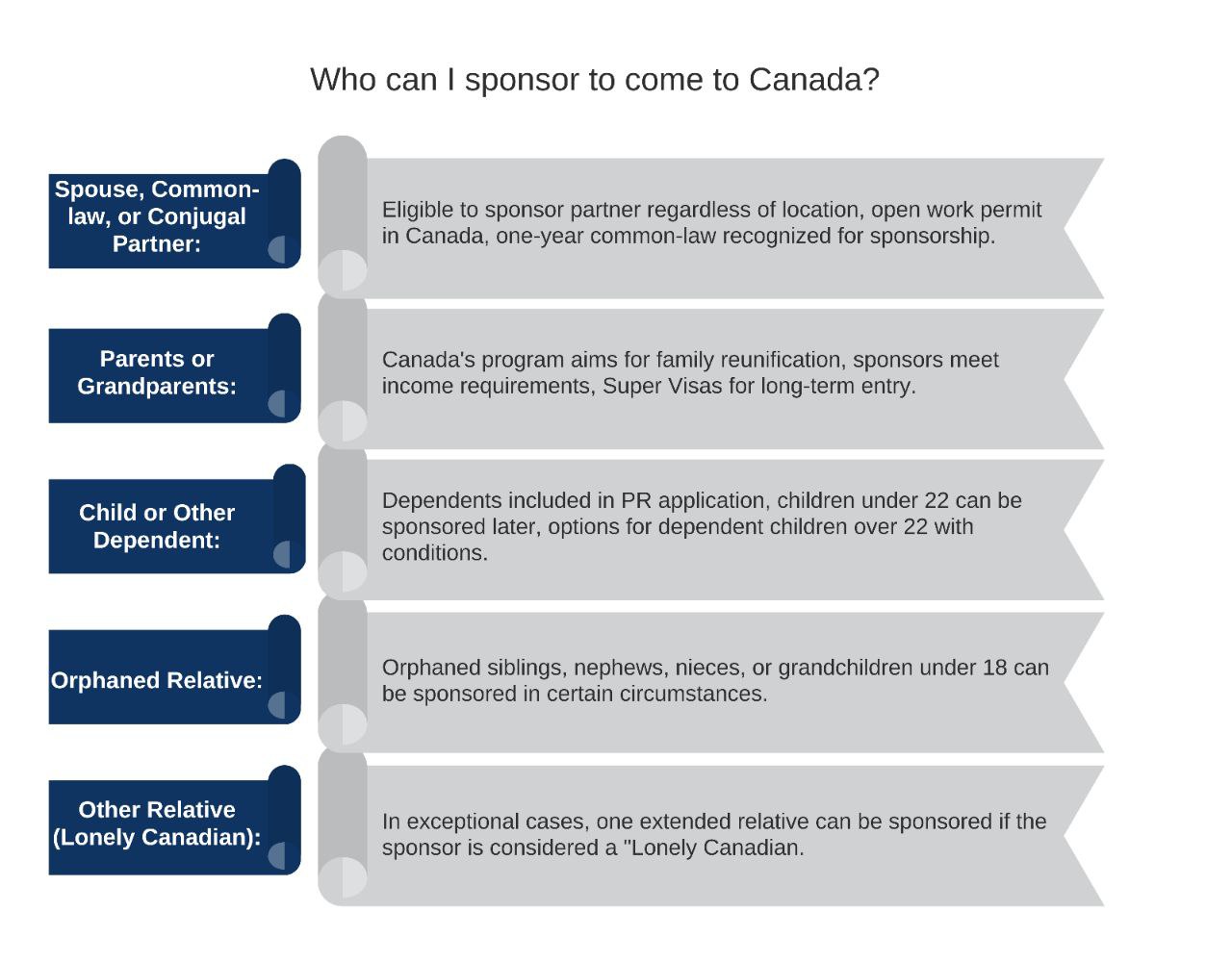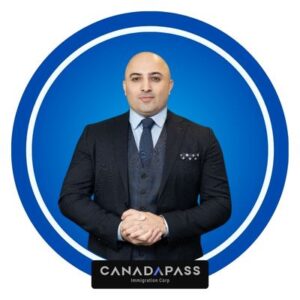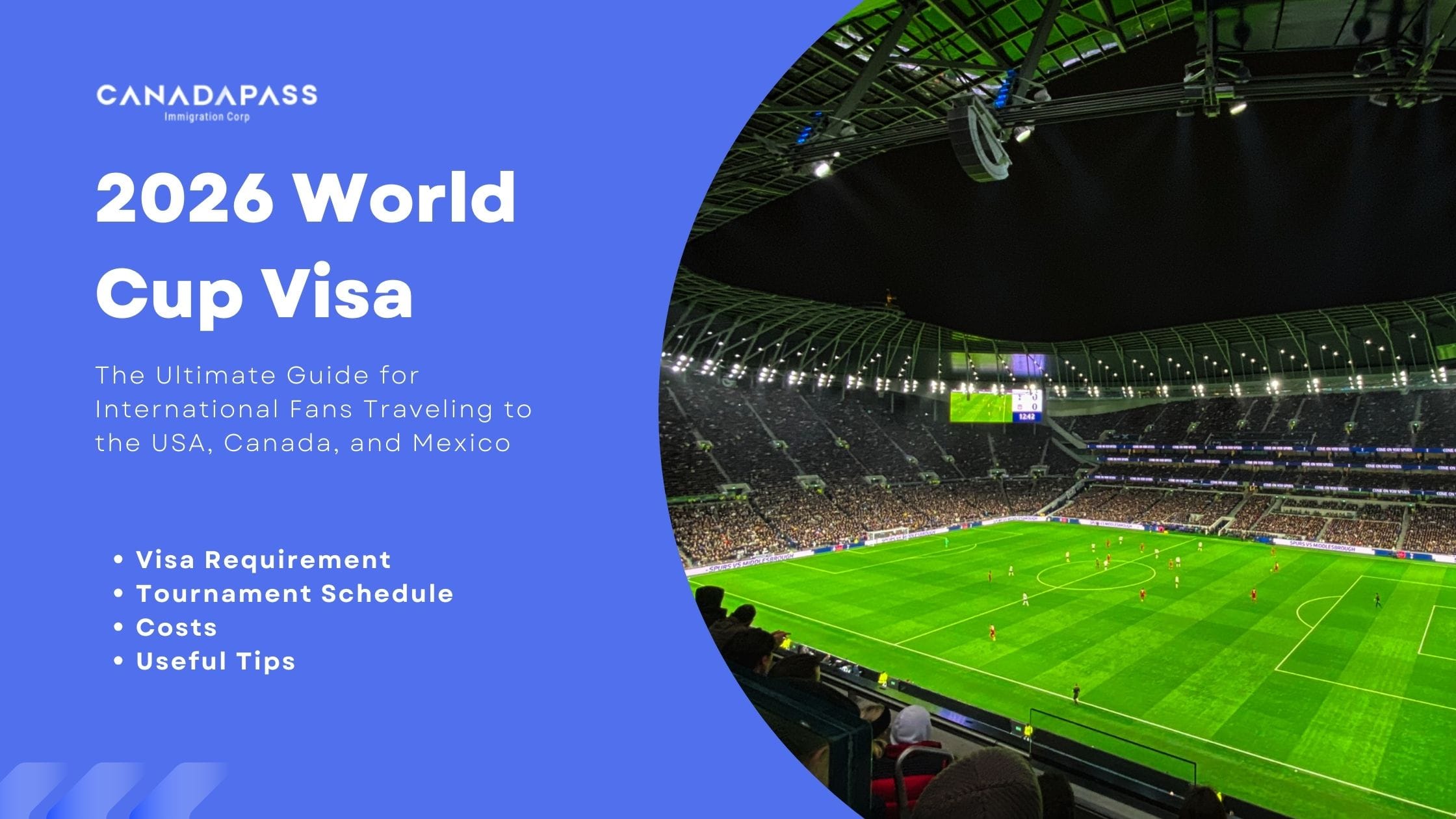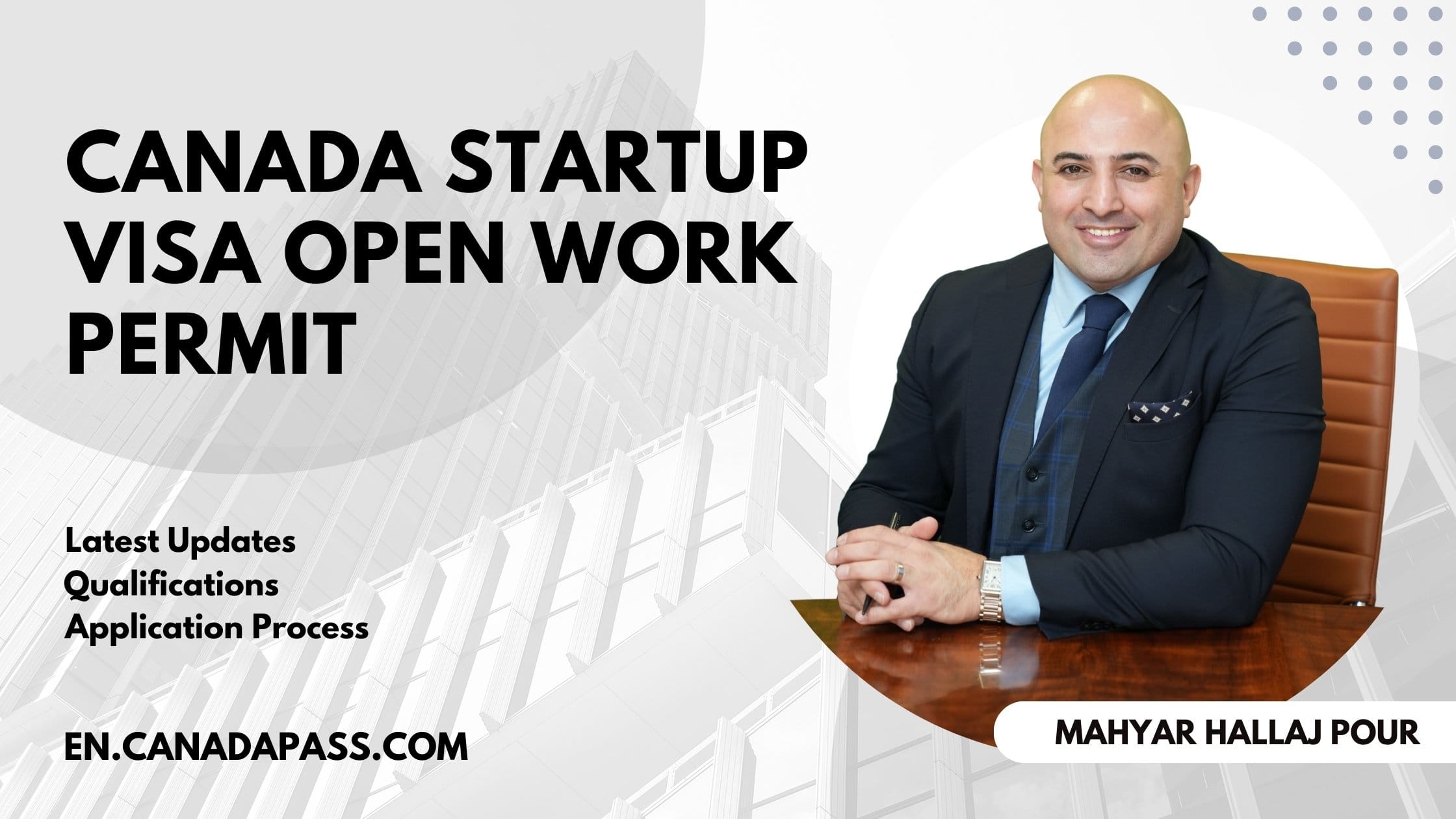Canada provides various immigration programs that enable Canadian citizens and permanent residents to sponsor their family members for permanent residency in Canada. These programs are designed to facilitate family reunification and strengthen the bonds within Canadian communities.
This page offers an overview of the sponsorship immigration process, outlining the eligibility criteria, program options, and resources available to guide you through the application journey. Whether you wish to sponsor your spouse, children, parents, or other eligible family members, you will find comprehensive information and support to navigate this important step.
What is family class sponsorship?
Family class sponsorship programs allow Canadian citizens and permanent residents to sponsor certain family members for permanent residency in Canada. This means that sponsored family members can immigrate to Canada and live here permanently.
Family sponsorship is one of the most popular immigration streams in Canada. It helps to reunite families and strengthen communities by allowing eligible family members to join their Canadian sponsors.

Who can I sponsor to come to Canada?
Canada offers various sponsorship programs allowing Canadian citizens and permanent residents to bring certain family members to live here permanently. The types of individuals you can sponsor include:
Spouse, Common-law, or Conjugal Partner:
- You may be eligible to sponsor your spouse, common-law partner, or conjugal partner, regardless of their current location.
- Sponsored individuals in Canada may qualify for an open work permit while the application is processed.
- Common-law partnerships that have lasted at least one year are recognized for sponsorship purposes.
Parents or Grandparents:
- Canada’s parent and grandparent sponsorship program aims to facilitate family reunification.
- Sponsors must meet the Minimum Necessary Income requirements to demonstrate financial support.
- Super Visas offer alternative long-term entry options for parents and grandparents who may not require permanent residency.
Child or Other Dependent:
- Accompanying dependents can be included on your permanent residence application.
- If not included initially, children under 22 (unmarried and childless) can be sponsored separately later.
- Sponsorship options exist for dependent children exceeding 22 with specific physical or mental conditions.
Orphaned Relative:
- Under specific circumstances, orphaned siblings, nephews, nieces, or grandchildren (under 18 and unmarried) can be sponsored.
Other Relative (Lonely Canadian):
- Exceptional situations may allow sponsoring one extended relative if considered a “Lonely Canadian” (lacking spouse, partner, child, parent, or grandparent).
Before sponsoring a family member for Canadian permanent residency, certain eligibility criteria must be met. These criteria are designed to ensure the sponsor’s ability to financially support their sponsored family member and contribute positively to Canadian society.
Eligible sponsors must:
- Hold Canadian citizenship or permanent resident status.
- Be at least 18 years old.
- Intend to reside in Canada, or plan to return upon the sponsored spouse or partner becoming a permanent resident.
- Demonstrate sufficient financial resources to meet the basic needs of their sponsored family member for a period of three years. This includes food, shelter, clothing, and essential items.
Individuals who do not meet the following criteria are not eligible to sponsor family members for Canadian permanent residency:
- Age: Be under 18 years old.
- Residency: Live outside Canada or plan not to reside in Canada when the sponsored person becomes a permanent resident.
- Citizenship Status: Not be a Canadian citizen, permanent resident, or registered Indian under the Canadian Indian Act.
- Temporary Status: Hold temporary resident status in Canada.
- Immigration Status: Be in the process of obtaining Canadian permanent residency.
- Financial Resources: Lack sufficient financial resources to support the sponsored person’s basic needs for three years.
Additional factors may limit your eligibility to sponsor:
- Sponsorship History: Have received permanent residency through sponsorship from a spouse or partner less than five years ago.
- Current Sponsorship: Be actively sponsoring a former spouse or partner.
- Pending Applications: Have a pending sponsorship application awaiting a decision.
- Legal Issues: Be incarcerated in jail, prison, or a penitentiary.
- Financial Obligations: Have outstanding immigration loans, alimony, or child support payments.
- Social Assistance: Rely on social assistance from the Canadian government.
- Criminal Record: Have been convicted of a violent criminal offense or a sexual offense inside or outside Canada.
- Removal Order: Received a removal order from Canada.
The cost of sponsoring a family member
The cost of sponsoring a family member for Canadian permanent residency varies depending on the specific program and the individuals involved. However, some general fees apply to most sponsorship applications:
- Sponsorship fee: $75 CAD
- Principal applicant processing fee: $490 CAD
- Right of permanent residence fee: $515 CAD
- Biometrics fee: $85 CAD
These fees total $1,165 CAD. Additional costs may apply in specific situations, such as:
- Spouse or partner fee: $1,050 CAD for including the spouse or partner of your sponsored relative.
- Dependent child fee: $150 CAD for each dependent child included in your application.
- Quebec residency fee: $310 CAD if you reside in Quebec or intend to reside there after your sponsored family member becomes a permanent resident.
Financial requirements for sponsoring family members
Financial requirements for sponsoring family members for Canadian permanent residency vary depending on the program and your family situation. To ensure you meet the necessary criteria, understanding these requirements is crucial.
Minimum Necessary Income (MNI):
- Sponsors of parents, grandparents, eligible orphaned relatives, and some applicants under the “lonely Canadian” policy must meet the MNI threshold for their family unit size.
- Proof of income meeting the MNI for at least three consecutive years is required through Canada Revenue Agency Notices of Assessment (NOAs).
Spousal Sponsorship:
- Unlike most other programs, sponsoring a spouse or common-law partner does not require meeting a specific income minimum.
- However, all sponsors must sign an undertaking, a legal agreement to financially support their sponsored family member for a specified period, typically 3 years for spouses and partners.
Additional Undertakings:
- Sponsors must also agree to reimburse the Canadian government for any social assistance benefits received by their sponsored family member(s) for up to 20 years.
- Additional requirements may apply to sponsors residing in Quebec.
Dependent Children:
- Canadian citizens or permanent residents sponsoring their dependent children without other dependents are not subject to the MNI requirement.
- If the sponsored child has dependents of their own, the MNI requirement applies based on the combined family unit size.
Sponsorship Processing Times
- Processing times for family sponsorship applications can vary depending on several factors, including program type, individual circumstances, and case complexity.
- While most applications are processed within 12 months, some may take longer due to specific requirements or additional inquiries from visa officers.
Ensuring Efficient Processing
- Submitting a complete and accurate application with all necessary documentation from the outset can significantly improve processing speed.
- Consider professional assistance from immigration consultants or lawyers to navigate the process and address potential complexities.
Sponsoring Multiple Family Members
- Canadian citizens and permanent residents can sponsor an unlimited number of eligible family members for permanent residency.
- Individual applications are required for each sponsored family member, including spouses, children, and other eligible relatives.
Sponsoring a Family Member in Quebec
Differing Sponsorship Process:
Due to Quebec’s unique immigration authority, sponsoring a family member to reside in the province requires additional steps compared to other Canadian provinces and territories.
MIFI Sponsorship Approval:
Permanent residents or citizens residing in Quebec must first obtain sponsorship approval from the Ministère de l’Immigration, de la Francisation et de l’Intégration (MIFI). This involves submitting a separate application and meeting MIFI’s specific requirements for sponsorship undertakings.
Federal Processing:
Once MIFI approval is granted, the individual can proceed with the federal family sponsorship application through Immigration, Refugees and Citizenship Canada (IRCC). Both MIFI and IRCC approvals are necessary for successful sponsorship.

Background Check
- All applicants for Canadian permanent residence over 18 must provide a Police Clearance Certificate to demonstrate compliance with criminal inadmissibility requirements.
- Clearances are required from any country where you resided for six months or more since turning 18.
Biometrics
- Most immigration applicants, including those sponsored for permanent residence, are required to submit biometric data.
- Use the Canadian government’s online tool to determine if biometric submission is necessary for your application.
- After your application and biometric fee are submitted, you will receive instructions from Immigration, Refugees and Citizenship Canada (IRCC) on providing your biometrics.
Medical Exam
- Applicants for permanent residence must undergo a medical examination to ensure they meet health requirements.
- Do not submit your medical exam with your initial application. Upon application submission, IRCC will provide instructions for completing the medical exam with a doctor on their designated panel of physicians.







